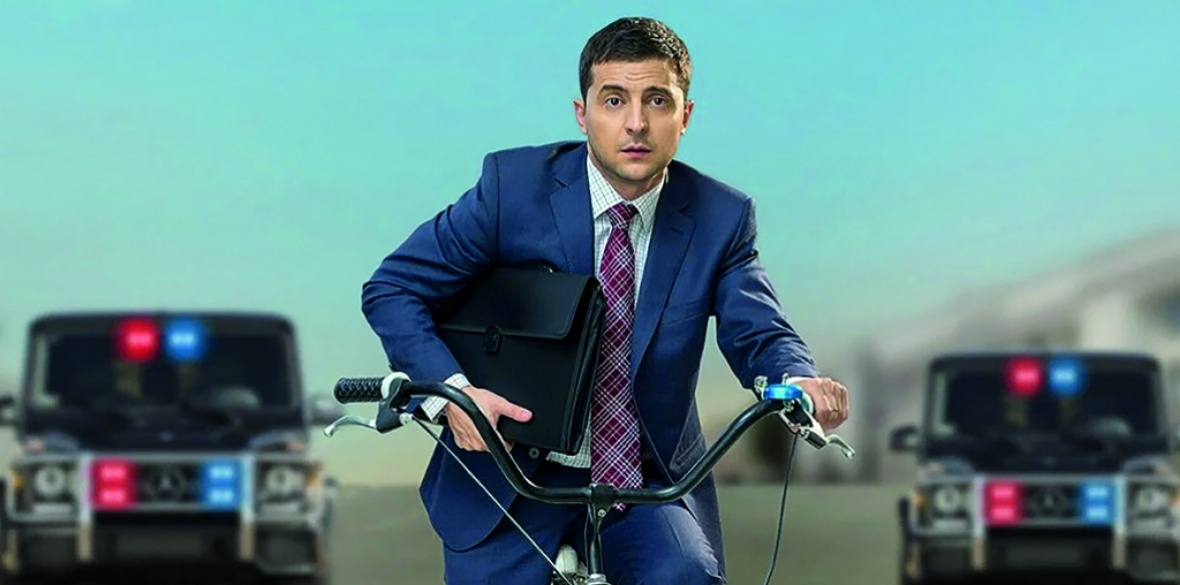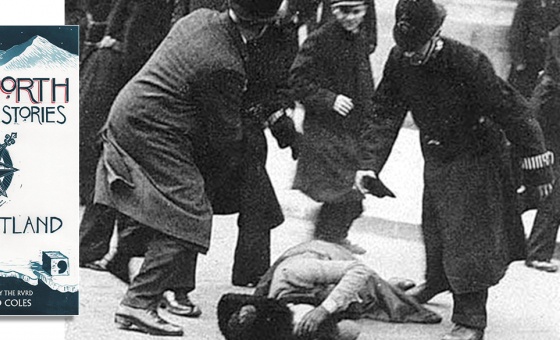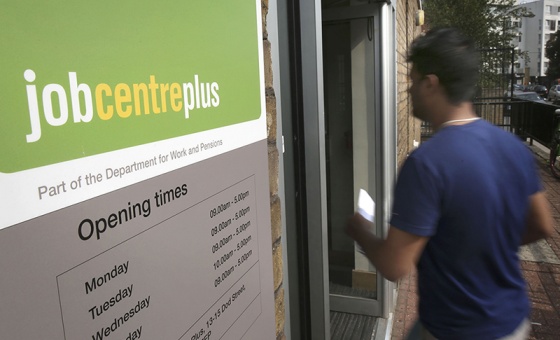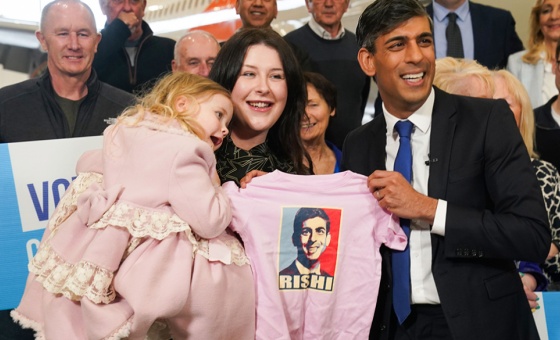This is the last article you can read this month
You can read more article this month
You can read more articles this month
Sorry your limit is up for this month
Reset on:
Please help support the Morning Star by subscribing here
VOLODYMYR ZELENSKY has been called many things. To some he is a hero, valiant defender of a small nation against a mighty one, David to Putin’s Goliath, or a saviour, turning back an invasion by sheer willpower.
To others he is a stooge, playing at diplomacy while not actually knowing what he is doing or, worse yet, a puppet, with the US, Nato and Ukrainian oligarchs pulling his strings.
But, perhaps the more accurate characterisation of Zelensky is to take seriously what he is in actuality — an actor, one who has been called upon to play at least four roles.
Servant of the People
Zelensky’s series Servant of the People, now a global sensation running on Netflix and Arte in France, ran for three seasons, 51 episodes, and right from the pilot catapulted an Alberto Sordi-type everyman, or every-schlemiel, into the Ukrainian presidency based on a diatribe against corruption that one of the students in his high-school history class recorded and posted and then went viral.
The show, which premiered in 2015, is a populist fable about how Vasily Peltrovich Holoborodko, in his thirties, divorced and living with his parents, boasts that the country would change if he could just rule it for one week and then gets his wish.
The villains on the show are Kiev oligarchs, shown in opening with just their deceiving lips moving as high above the city they boast about the mockery of elections where each controls a different candidate supposedly opposing each other.
Servant of the People – The reality series
Scarcely had the show finished its run in 2019 when Holoborodko/Zelensky was himself elected president, running on a platform copied right from his character on the show, promising peace, prosperity and unity while portraying himself as a kind of homespun man of the people, a la Jimmy Stewart in Mr Smith Goes to Washington, who would wage war against political corruption.
He would also be a healer, a Jewish Russian speaker from the east who promised to “reboot” failed peace talks with the breakaway provinces of Lugansk and Donetsk and negotiate a “ceasefire” to end a war that had been destroying the country since 2014.
Ukrainians, whose level of distrust of their government had reached a world low of 9 per cent by the time of that election, ushered Zelensky/Holoborodko into office in a second-round landslide where he beat the standing president Petro Poroshenko, regarded by electors as a part of the oligarchy, by 73 to 24 per cent.
Servant of the oligarchs
Unfortunately, once in office, he himself behaved more like Kevin Spacey’s Machiavellian manipulator in House of Cards then Gabe Kaplan’s affable instructor in Welcome Back Kotter.
His cleaning up corruption turned out to be primarily to make Ukraine safe for foreign capital, and so he set about attempting to please Western financial institutions above all else.
A key demand of these institutions was “land reforms,” that is a privatising and monopolising of lands long held in common since the Soviet period.
The land reform measure was widely opposed, with 72 per cent against this attempt to accustom the country to, in Zelensky’s words, “the normality of capitalism.”
These neoliberal reforms, which Zelensky happily championed, led to industrial decline, salaries in arrears, rising unemployment and — and this is before the war with Russia — massive labour migration and depopulation.
Accompanying this drop in popularity was a revelation that the owner of 1+1 Media — the popular television channel that aired Servant — Igor Kolomoyskyi lent his personal lawyer to Zelensky to be campaign adviser and contributed to and promoted his candidacy on 1+1 and various other media outlets he owned.
Once in office, Zelensky removed the oligarch’s opponents: the prosecutor-general, the governor of the National Bank of Ukraine and his own prime minister who tried to regulate the media oligarch’s control of a state-owned electricity company.
All this suggests that the serendipity of Servant may instead have been a carefully calculated campaign hatched not in 2019 at the time of the election but in 2015 as the show debuted to widely popular audiences.
Servant of the empire
Perhaps the last role, though, is more ominous. With his popularity declining, Zelensky moved to institute more strict controls on freedom in the country.
He has sanctioned political rivals and silenced television channels controlled by them, going so far in 2021 as to suggest that those in the Donbass sympathetic to Russia “emigrate there.”
His party has also moved to pass a regressive labour law, curtailing rights on working hours and working conditions, as well as making it easier to dismiss workers without compensation, while even going so far as to cancel the rights of women to not be compelled to do strenuous labour.
In addition, just before the war, France and Germany attempted to revive the Minsk accords, which would have allowed a ceasefire, and Zelensky refused to agree to restart the talks.
Zelensky then embarked on his world tour, this time as a kind of Zelig, Woody Allen’s chameleon who simply assumes the personality of whatever foreign leader he is near.
Zelensky has become all things to all people, but especially serving those in the West who want to keep the war going in perpetuity, seeing a chance to achieve a 20-year US goal of effecting regime change in Russia, no matter the cost.
Which brings us to Zelensky’s last role, one where he moves from man of the people to perhaps now serving not only the US empire but also, as aider and abettor of the Nazi Azov Brigade as it prepares for a last defence of Mariupol.
This new role is more akin to that of the actor in the 1980s film set in Nazi Germany who serves as a front for the government until he loses his effectiveness and is cast aside.
Holoborodko, the Servant of the People, may be completing a long, arduous transformation into Mephisto.












